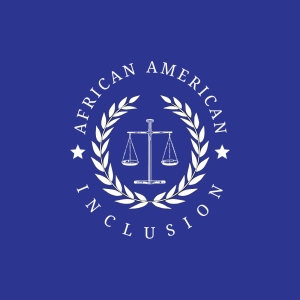Women’s History Month : Contributions of African American Women
Women’s History Month is an annual celebration of the accomplishments and contributions of women throughout history. It is a time to recognize the struggles and triumphs of women and to acknowledge the work that still needs to be done to achieve gender equality. However, it is also important to recognize that the experiences of women are not monolithic and that women from diverse backgrounds face unique challenges and barriers.
History of Women’s History Month: Women’s History Month began as a week-long celebration in 1981, organized by the National Women’s History Project. The event was intended to highlight the overlooked contributions of women in history and encourage the study and celebration of women’s achievements. In 1987, Congress passed a resolution designating March as Women’s History Month, which has since been celebrated annually.
African American Women in Women’s History Month African American women have played a significant role in Women’s History Month. They have made important contributions to society and have fought for gender and racial equality. Here are some examples of African American women who have made a difference:
- Sojourner Truth: Sojourner Truth was an abolitionist and women’s rights activist. She is best known for her “Ain’t I a Woman?” speech, which she delivered at a women’s rights convention in 1851.
- Harriet Tubman: Harriet Tubman was an abolitionist and political activist. She is best known for her work as a “conductor” on the Underground Railroad, helping to lead enslaved people to freedom.
- Maya Angelou: Maya Angelou was a poet, author, and civil rights activist. She is best known for her memoir, “I Know Why the Caged Bird Sings,” which discusses her experiences growing up in the Jim Crow South.
- Shirley Chisholm: Shirley Chisholm was the first African American woman elected to Congress. She served in the House of Representatives from 1969 to 1983 and was a fierce advocate for civil rights and women’s rights.
These women, and many others, have paved the way for future generations of African American women to achieve success and make a difference in their communities.
The Contributions of African American Women: African American women have made significant contributions to society throughout history, despite facing systemic barriers and discrimination. For example, Harriet Tubman was an abolitionist and political activist who escaped slavery and later helped others escape through the Underground Railroad. She also served as a nurse, cook, and spy for the Union Army during the Civil War.
In addition, African American women played a vital role in the civil rights movement. Rosa Parks, known as the “mother of the civil rights movement,” refused to give up her seat on a Montgomery, Alabama bus, sparking the Montgomery Bus Boycott. Ella Baker was a civil rights activist who worked with the National Association for the Advancement of Colored People (NAACP) and helped found the Student Nonviolent Coordinating Committee (SNCC).
More recently, African American women have continued to make significant contributions to society. Kamala Harris, the first African American and South Asian woman to serve as Vice President of the United States, has worked as a prosecutor, attorney general, and senator. Stacey Abrams, a political activist and author, has focused on voting rights and political mobilization, founding organizations such as Fair Fight Action.
Celebrating Diversity, Equity, and Inclusion in Women’s History Month: While Women’s History Month is a time to celebrate women’s achievements, it is also an opportunity to reflect on the experiences of women from diverse backgrounds. African American women, like women from other marginalized groups, have often been excluded from mainstream narratives of women’s history. Recognizing and celebrating the contributions of these women is essential in creating a more equitable and inclusive society.
In addition, it is important to acknowledge that the experiences of women are not universal. Women face intersecting forms of discrimination based on their race, ethnicity, sexual orientation, gender identity, ability, and other factors. An inclusive celebration of women’s history recognizes and embraces these differences, and strives to create a space where all women are valued and represented.
Creating an inclusive celebration of Women’s History Month involves highlighting the contributions of African American women, as well as women from other marginalized groups. It involves recognizing and addressing the systemic barriers and discrimination that have historically prevented these women from achieving recognition for their contributions. It also involves actively working to promote diversity, equity, and inclusion in all aspects of society, including education, media, and politics



